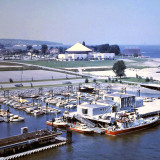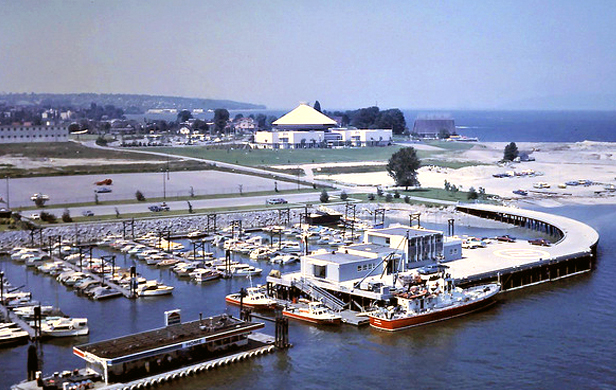Well, well – if I had false teeth I would have swallowed them on Monday morning when I saw, on the op-ed page of the Vancouver Sun, an article by Gwen Barlee on sustainability. Here was the page dominated by the Fraser Institute’s own – Fazil Milhar – doing something on the environment that wasn’t an industry screed.
Ms. Barlee is the Policy Director of the Wilderness Committee and a bright, articulate woman who writes very well as you will see if you take a moment and read it in the paper or online. This is an excellent and balanced column as those who know Gwen would expect.
It raises this question. Gwen, because of tax implications for the Wilderness Committee, must be careful of getting into party politics. This rule concerns all advocacy groups who must maintain an even hand politically or lose their tax exempt status. That being said one wonders how the Fraser Institute and the Canadian Taxpayers Federation get away with their partisanship.
But let’s turn that question over to Mr. Milhar. Assuming that the Fraser Institute and the Canadian Taxpayers Federation are not partisan (you may take 30 seconds off for laughing here) why do they get constant access to the op-ed page of the Sun and the Wilderness Committee do not?
Let’s expand that question – recently you’ve had two large legal firms shilling, in the first case for the great impartiality of government Environmental Assessment procedures, and the other on the benefits of the Tory Omnibus Bill that will remove habitat protection; the Omnibus Bill lumps this in with several other initiatives thus all but eliminating any serious debate on the part that eliminates habitat protection rules for large developers.
Over the years, you have given Mary Ellen Walling, shill for the BC Salmon Farmers Association, space any time she has demanded it.
Now then, Mr. Mihlar, how many times have you given op-ed space to Alexandra Morton who, since 1992, has fought against fish farms? Or to Dr. Daniel Pauly of UBC, a world wide name in science who has consistently opposed fish farms. Or to any other opponents of fish farms? Please give us the number.
How many times have you given space to those fighting private power that now has BC Hydro spilling $150 million dollars over the dam because they are forced, by the Campbell/Clark government to buy the power from private companies? I have tried to get an op-ed piece (and I am a professional writer) but you never even answer my letters. Why have you never given space to Erik Andersen, an economist. Or to John Calvert, whose book Liquid Gold tells the entire story. Please provide me, for passing on to others, the times and places you gave op-ed space to anyone opposing the private rivers scheme which has, essentially, driven BC Hydro into bankruptcy – only formally not so because they can visit their losses on to the public through higher rates or government subsidies, or both.
Let’s move on to pipelines and tanker traffic. John Brajcich, a lifelong commercial fisher (as was his father and is his son) can be found on The Common Sense Canadian – his letter tells what will happen with oil tankers full of bitumen going out of Kitimat down Douglas Inlet. How about Rex Weyler? What about Andrew Nikiforuk, whose book Tar Sands gives the full details about the Tar Sands and the consequences of them being piped ands shipped.
Have you permitted any op-ed pieces on the record of Enbridge, who propose the Northern Gateway Pipeline? They have had at least 811 spills since 1998 including one into the Kalamazoo River in Michigan, in July 2010, called a minor spill by the company, which spill has yet to be cleaned up, despite millions being spent, because one cannot clean up bitumen spills.
I challenge you, Fraser Institute Fellow Fazil Mihlar, who has long been in charge of the op-ed page of the Vancouver Sun, to tell me of any op-ed pages offered to environmental groups opposed to fish farms, private power or pipelines and tankers.
———————————————————————————
Rich Coleman, who learned about democracy as a cop, has taken away from the BC Utilities Commission the right to review proposed Hydro rates and promises that the government will keep rates down for consumers.
THE ONLY WAY HE CAN REDUCE RATES IS BY SUBSIDIZING BC HYDRO WITH YOUR TAX DOLLARS!
That’s right, folks. Instead of putting several hundreds of millions into the public treasury each year, BC Hydro must cover its losses, taking mandatory private power by financial donations from us, the citizens of BC.
This is not rocket science, folks. As we speak, BC Hydro is spilling millions of dollars over its dams because it is obliged by the Campbell/Clark government to buy power it doesn’t need from private companies at 2+ times the market price. It has been reported that this is costing BCH $150,000,000 this year – it will be much more in the coming years.
The reason Coleman, who since Campbell left has taken over as Pinocchio, wants BCUC out of the setting of rates is because they would look closely at this private power public theft and Coleman can’t allow this to happen.
A COUPLE OF YEARS AGO, THE BCUC DETERMINED THE PRIVATE POWER CONTRACTS WERE NOT IN THE PUBLIC INTEREST – AND THAT’S WHAT THIS DECISION IS ALL ABOUT.
———————————————————————————
Lastly, today, I want you to know what you can expect from the Common Sense Canadian re: First Nations’ fight against pipelines and tanker traffic on unceded lands and waters.
We support the position of these First Nations but we would never presume to interfere in any way with their pursuit of these claims – if for no other reason than they clearly don’t need us to tell them how to proceed.
On the other hand, First Nations are also protesting against pipelines and tankers because of the certainty of enormous damage to the province we all share and in that we have a common cause and on that aspect of the issue, First Nations can expect our whole-hearted and active support.







